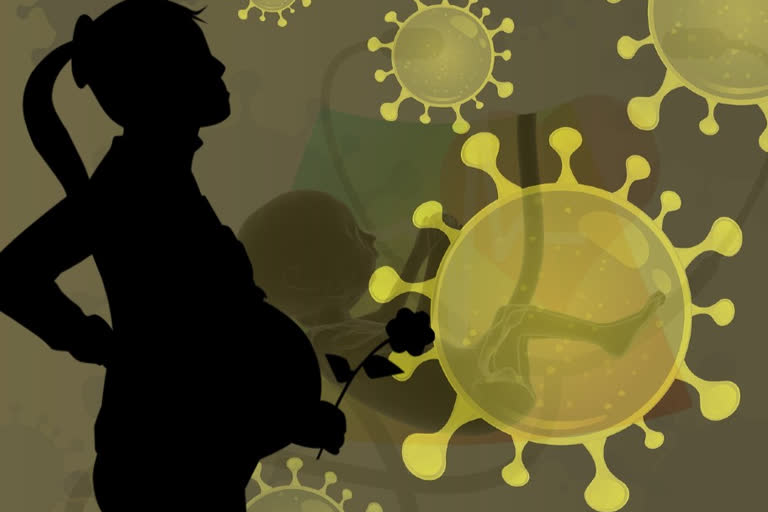New Delhi: Since the outbreak of COVID-19 pandemic, the healthcare resources and frontline workers of most countries across the world have been primarily deployed to deal with COVID-19 patients, door to door testing of citizens and other functions involved in grappling with the pandemic. In such a scenario, countries such as India with a weak and crumbling healthcare infrastructure have had to face the problem of lack of resources for other important areas in healthcare such as maternal health.
Lack of access to sexual and reproductive health services caused sharp spikes in maternal and neonatal mortality at the start of Covid-19 outbreak. United Nations Population Fund (UNFPA) estimates that there could be up to 7 million unintended pregnancies worldwide because of the crisis, with potentially thousands of deaths from unsafe abortion and complications during birth due to inadequate access to emergency care.
According to UNICEF, 20 million babies are expected to be born in India between March and December, the highest in the world. Further, the United Nations Children's Fund (Unicef) has warned that pregnant mothers and babies born during the pandemic across the world were threatened by strained health systems and disruptions in services. This means that as India deals with COVID-19 pandemic, it also needs immediate solutions that can be adopted across the country for addressing long prevailing problems in maternal health such as lack of timely diagnosis of pregnancy, high maternal and infant mortality rates etc.
Given the lack of resources for maternal health during COVID-19 pandemic, it is important that India considers adoption of wide range technological solutions across the country to address issues faced by pregnant women. Some such innovative solutions are already being used in some parts of the country. For example, a mobile app called Arogya Sakhi developed by urogynecologist Aparna Hegde, is helping pregnant women in rural parts of Maharashtra. ‘Arogya Sakhi’ lets ASHA workers diagnose and provide prenatal care to mothers who cannot access hospitals. Another example of a technology innovation in maternal healthcare in India is Alliance for Saving Mothers and Newborns (ASMAN), a digital platform to help health care providers that is being used in Rajasthan and Madhya Pradesh (states where maternal and neonatal mortality rates are highest) to save the lives of mothers & newborns through facility-based technology innovations and interventions. Further, if a women living in a remote rural area goes into labour and the journey to access a healthcare centre is difficult, during this time the use of an e-partograph during transit can be critical in monitoring labour progress and a live dashboard could help health workers and managers monitor all cases in real-time; identify and manage high-risk cases; refer cases to higher level care centres, and make urgent decisions if necessary. Solutions like these if made available across the country especially in rural India will help save lives.
In the current scenario, it is imperative that there is emphasis on combining the optimization of home visits by ASHA and ANM workers and dedicated teleconsultation and counselling to ensure complication detection early among pregnant women for referral and follow up. Tech-driven solutions can also be useful in building capacity to ensure consistent maternal health services during the pandemic. This can be done through E-training mechanisms and capacity building exercises for the additionally requisitioned health workforce to reduce the workload of time-sensitive commitments and non-health work. But as much as possible usage of skilled providers of maternal and newborn care to COVID-19 response should be discouraged.
Technological solutions can also be used for strengthening health information systems at the national and local level to promote evidence-based decision making on health indicators, coverage, utilization, disease surveillance, quality service delivery monitoring, reporting, ensuring adequate funds etc.
In conclusion, as India faces COVID-19 with its strained healthcare infrastructure, the use of innovative technological solutions across the country can play a pivotal role in ensuring seamless availability of maternal health services and save lives.
(Mrs. Amita Dhanu is currently heading the Programmes division as the Assistant Secretary General – Program Implementation (ASG-PI) at the Family Planning Association of India (FPA India) )


